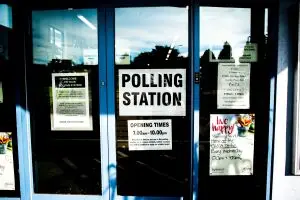Boris Johnson has set out his intention to give more control over rail services to local politicians.[1] This move increases the need for transport companies and investors to change the way they think about shaping policy and decision-making. Any transfer of power away from Westminster will alter centres of influence, stakeholder targets and the messages required to engage new collections of policy-makers.
Narrowing political space
In a speech in Rotherham, the Prime Minister vowed to ‘give the railways of the North back to the people of the North.’[2] In practice this would mean northern mayors and combined authorities determining local train fares, timetables and budgets.
The pledge partly addresses continued demands from northern leaders, such as the Mayor of Greater Manchester, Andy Burnham, and the Mayor of the Liverpool City Region, Steve Rotheram, for greater powers. It also brings the Government’s position closer to that of the Opposition’s in this area. The Shadow Chancellor, John McDonnell, has recently announced Labour’s plans for a devolved unit in the north of England, which would be responsible for improving infrastructure and the transport system.[3]
Political dynamics might not necessarily equate to realisation
The political motivations are clear: The Conservatives are targeting northern seats ahead of a prospective general election, and northern voters endure some of the least satisfying rail services in the country.[4] However, the announcement has been met with caution from northern leaders who have emphasised the need for funding in conjunction with new powers.[5] Analysis of HM Treasury and Infrastructure and Projects Authority (IPA) data shows that public spending on transport, both in absolute terms, and on a per capita basis is considerably lower in the North than in the South.[6]

Source: House of Commons Library analysis of HM Treasury and IPA data.[7]
For now, this cautious interest should be shared by commercial organisations. The Prime Minister’s announcement should not be taken as a guarantee of a shift in transport administration. As the data demonstrates, powers without increased funding would limit the prospects of significant change. However, with both of the major party’s policy stances converging, the likelihood of devolved transport has arguably increased. The key for businesses will be to acquire the correct insight on developments in order to prepare accordingly.
Change could be coming down the tracks
Any developments in the North will have wider implications for regions in all parts of the country with the emergence of six Sub-national Transport Bodies (SNTBs). Transport for the North is the most established of the SNTBs and its eventual power and funding framework will naturally serve as an example for the others. The final details are expected to be published after the Williams review. Meanwhile, businesses and financiers should pay close attention to the situation, and invest in understanding the politics at play in order to capitalise on any opportunities that might arise.
Brevia Consulting provides straightforward political advice and support to businesses and organisations.
Discover how Brevia can help you and your organisation by contacting the Brevia Transport Team on 020 7091 1650 or contact@brevia.co.uk
[1] Prime Minister’s Office, 10 Downing Street, and The Rt Hon Boris Johnson MP, 13 September 2019, link
[2] Prime Minister’s Office, 10 Downing Street, and The Rt Hon Boris Johnson MP, 13 September 2019, link
[3] Manchester Evening News, 7 July 2019, link
[4] Transport Focus, National Passenger Survey – Spring 2019, p.11, link
[5] Transport for the North, Response: Prime Minister’s speech at Convention of the North, 13 September 2019,link
[6] House of Commons Library, Transport Spending by Region, 12 February 2018, p.9, link
[7] House of Commons Library, Transport Spending by Region, 12 February 2018, p.5, link




